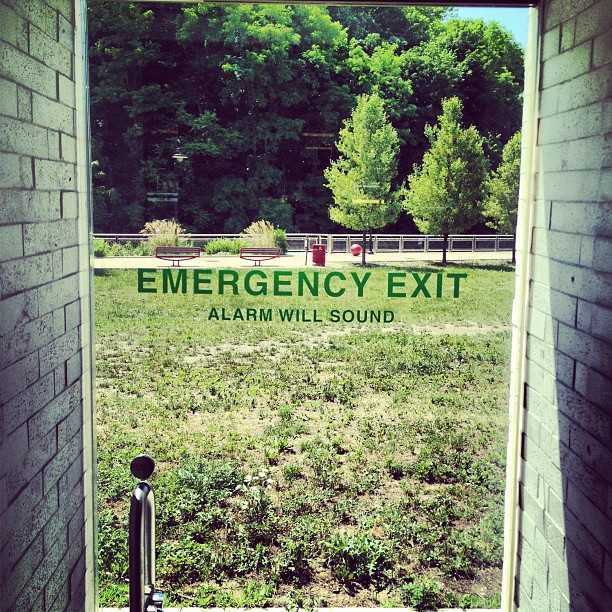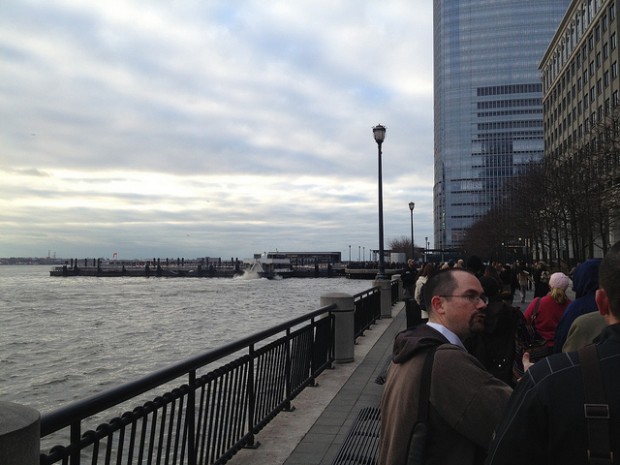There are few things harder to understand as a kid than having to uproot and move. Getting familiar with a new town, fitting in at a new school, making new friends – these things are hard enough when you’re an adult in control of the situation. As a kid who doesn’t quite yet understand how the world works, it erases nearly everything you knew and forces you to start over.
2012 In Pictures
Games of 2012: The Rest
Here’s a shocker: despite there only being 26 games in my blog post series, I played more than 26 games this year. A number of these games didn’t warrant a full blown post, but I did want to at least recommend them or give them their due. So here’s a big list of 30 games that didn’t make the list that might be worth a look (or a pass) – in three sentences or less per game.
Analogue: A Hate Story (Steam): A well-written interactive fiction game that has you digging through an abandoned space ship’s computer to figure out what happened to it. A lot to dig into, and the interactions with the AIs are well scripted. Originally on the list for this year, but left off because other games took its spot.
Chip Chain (iOS): A pretty recent title that sort of plays like a match-three game, but with some unique mechanics I hadn’t seen before. Good style and polish on it, although just slightly hampered by some IAP pushing. Worth a look for iOS gamers in need of a puzzle game fix.
Counter-Strike: Global Offensive (Steam/PSN/XBLA): I’ve always felt I should’ve gotten into Counter-Strike, and this is the first one that felt accessible enough that I could. Plays really fast, runs well – perhaps this can finally bump CS 1.6 off the throne. Need to spend more time with this.
Defender’s Quest: Valley of the Forgotten (Steam): Puts some deep RPG elements on top of tower defense games, and tries to put a story on top of it as well. Tower defense lovers should give this a look.
Double Dragon: Neon (PSN/XBLA): I wanted to hate this game for coining the phrase “bro-op”, but it overcame that. Really amazing soundtrack by Jake Kaufman that serves as both an homage to the original series and to 80’s pop.
Dyad (PSN): Trippy as hell tube racer/shooter/puzzler/something. One of those games that just seems to fit on PSN. Really hard to describe, obviously.
FIFA Street (PS3/360): When I played soccer as a kid, I loved indoor, so a game that focuses on the smaller version of the game seemed like a great idea. But of course the execution was flawed and I forgot about it after two weeks. Left off the list because I already had enough soccer games and enough counter-example games.
Football Manager 2013 (Steam): It’s the first year for FM where they’ve actually tried to make the game more accessible to newcomers, and that’s a big deal – those looking for a robust sports sim should get in the door now. I should be happy I haven’t lost my soul to this game yet.
Gasketball (iOS): Good physics puzzler that has you making trick shots with a basketball. Frustrating at times given the game’s unforgiving nature, but nailing a shot feels really good.
Gotham City Impostors (Steam/PSN/XBLA): Got slogged in the press, but I actually liked what this was trying to do. Team based shooters have gotten pretty same-y, and GCI at least tried to change up the formula. It’s free to play now on the PC, so it can’t hurt to try.
Hell Yeah! (Steam/PSN/XBLA): A really bizarre Sega release that feels like they were trying just a little too hard to channel Disgaea into a platformer. Still, it’s not bad at what it does, and the humor isn’t unbearable. I like seeing Sega take a chance on a new franchise rather than rehashing Sonic again.
Iron Brigade (Steam/XBLA): Doublefine’s take on the Tower Defense genre, with a fun cross of early 20th century war and sci-fi trappings. Probably a ton of fun in co-op, but I barely spent any time with it beyond the tutorial levels (mostly for lack of friends with the game).
Karateka (iOS/PSN/XBLA): I adored Jordan Mechner’s original game, and I’m so glad to see it back on modern platforms. Feels right on iOS, although I haven’t tried the console versions. Just came out on December 19th, so it was a little too late-breaking to make it into the list.
Knights of Pen & Paper (iOS): This has become my renewed addiction over the past week: a mobile RPG that works in short bursts. The concept, which is that you’re a group of people playing a tabletop RPG, gives it a good sense of humor and place missing from a lot of RPGs. Had my addiction came weeks earlier, it would’ve been a lock for a post.
Legend of Grimrock (Steam): I am so glad someone finally did a modern take on Dungeon Master. I missed crawling around chunky grid-based dungeons. Cheap during the Steam sale this week, so if you have nostalgia for dungeon crawling 80’s style, get on it now.
Little Inferno (Steam/WiiWare): I burned through this (hur hur) in one afternoon, and while I loved what it was trying to do, I didn’t really like how it did it. Not quite enough of a game to warrant the $10 asking price.
Lost Cities (iOS): From the same team that did Carcasonne comes a great port of a modern card game. As fully featured and well polished as one can want in a card game. Exemplary stuff for other iOS developers.
Mark of the Ninja (Steam/XBLA): Got a ton of love from XBLA enthusiasts, and I have not gotten enough time with the Steam version. Definitely seems to have the stealth gameplay down cold, though.
Orcs Must Die! 2 (Steam): Loved the first one, and the second seems like a good refinement on the formula. Half over-the-person shooter, half tower defense. Also, co-op!
Puzzle Craft (iOS): Draw-to-match tile puzzle mixed with town building and upgrading? Would have been pure digital crack were it not for performance problems and bugs. Should be safe now, though.
Retro City Rampage (Steam/PSN): Suffers from “references overpower the gameplay” syndrome – too many jokes, not enough original ideas. Wanted to like this but ended up just feeling let down. May give it another shot since the PSN/Vita version was recently free.
Sleeping Dogs (Steam/PS3/360): Impressed by Squeenix’s take on the GTA formula. World seems pretty nicely realized, enough so that I’m looking forward to getting back to it. If you’re waiting on pins and needles for GTAV, give this a look.
Sound Shapes (PSN): Such a cute, smart, well built platformer. Great art, great music. Just felt way too short in exchange for a level editor – community can’t replace solid game design.
Spaceteam (iOS): Absolutely love the concept: all your networked iOS devices show controls and instructions, which need to be shouted so someone else can fidget with the dial to avoid your ship exploding. Always a big fan of interactive group games. My only issue: I haven’t played this with anyone yet.
Spec Ops: The Line (Steam/PS3/360): I’ve been told there’s an amazing twist and writing waiting beneath the surface of this. But the couple of hours I spent with it just felt like a really janky third-person shooter. Will return to it in the future.
SSX (PS3/360): I need to stop getting my hopes up for SSX games, as EA has broken my heart more times than they’ve won it over. The endless array of equipment and stats tinkering here lost me. A shame, because the snowboarding itself was pretty fun in the right circumstances.
Tokyo Jungle (PSN): Again, a quirky title that feels like you would only find it on PSN. I enjoyed running around the abandoned streets of Tokyo as a pomeranian – until I was attacked by a rhino. Lovers of quirky titles should not pass this up.
The Walking Dead (Steam/XBLA/PSN/iOS): Has won so many damned end of the year awards, I felt like re-iterating that I hadn’t had a chance to play it yet. Have just dipped my toe into chapter 1, and I can tell there’s quality here. Probably a safe bet if you like point-and-click adventure games.
XCOM: Enemy Unknown (Steam): If there’s any game I regret not spending more time with, it’s XCOM. Loved the demo, but the ongoing issues with my Windows install took me away from it and I desperately want to play it again. Expect to see me logging series time on this on Steam the minute I can install Boot Camp again.
Zookeeper Battle (iOS): Competitive Match 3, with cute blocky Japanese style. Gets surprisingly tense when you can’t make matches or when you wait to see how the rounds resolve. Online live play only, but it’s free, so give it a try.











